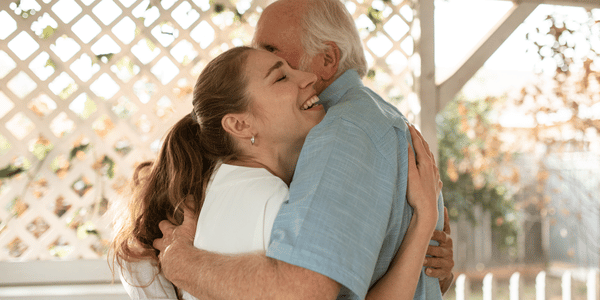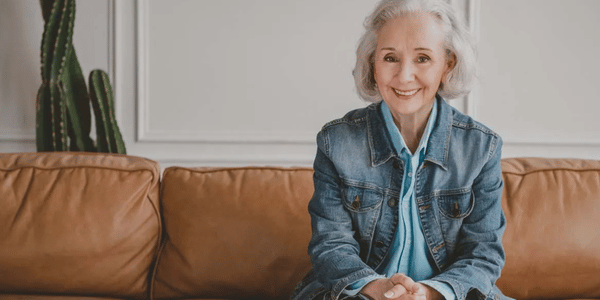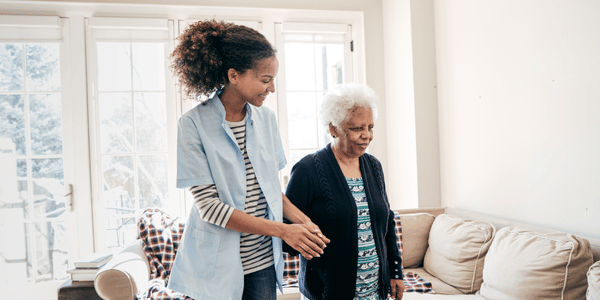
New Year’s is upon us and with it, the time of year for setting new goals and looking back at where we’ve been. However, we need not wait for the Earth to pass around the Sun to set new intentions. Starting each day with a moment of reflection and intention setting can provide us with a bit of clarity and an opportunity for us to do something thoughtful for ourselves.
For many family caregivers, as well as those who support caregivers, it may be challenging or even feel selfish taking time to focus inward. I understand this feeling and try to remind myself of the following two quotes as often as I can, especially when I’m feeling depleted.
“Do something good for yourself today. You matter.”
– Virginia Madsen
“You can’t pour from an empty cup…”
– Unknown
Whether it’s at the beginning of each week, month, or year, I think resolutions can be a great way to fill our cup back up. Starting a new hobby, making a renewed commitment to health, or maybe dusting off those book that we “just haven’t had the time for” can also help stimulate a positive mindset and personal growth.
In my own experience, I know that resolutions often fall short of my intentions, unless I have some type of action plan to guide me from resolution to reality. This is why I upgraded the traditional resolution for what I call an “Intent to Action Plan.” I realize that this may not have the most fun sounding name, but it’s what sticks for me. I’ve learned that what I call it is less important than actually reminding myself to use it.
The foundation of any Intent to Action Plan that I create is knowing why I am setting an intention. This helps me define it more candidly and understand it more clearly. I can then break it down into specific steps I will take to make it a reality. As an example, I’ll share with you a real intention (aka: goal, resolution, etc.) that I am setting for myself:
Justin’s Intent to Action Plan – 2024
Reflection – Why am I setting this intention?
As I look at the past year, there have been several significant changes in my own life as well as the world around me. As much as I love change, I note that the moments I felt most “in-control” are those when I was practicing meditation or intentional breathing on a regular basis. The presence of an extreme situation seemed less relevant to how anxious I felt on any given day, than whether or not I was taking a moment at the beginning of each day to focus on my breath for 5 to 10 minutes.
It was when I fell out of regular practice with my breathing exercises that I remember feeling the most scattered, even when there was nothing “major” that I needed to confront. I may have saved 10 minutes a day by not pausing to be present with my breath and body, but I feel those were the weeks I wasted the most hours stressing about things out of my control and perhaps failing to see those things which I could.
Intention – What am I intending to do?
I want to…I will be consistent with my regular meditations and breathing exercises.
Actions – How will I make this intention real?
This week…
- I will schedule a time into my morning routine to pause for a meditation or breathing exercise.
- I will keep a basic journal to note of what time and for how long I practiced each day. If I did not make the time for my practice, I will write the date and place and “X” next to it.
Next week…
- I will take 20 minutes on Sunday to look back at the previous week.
- I will jot down a few things in my journal about how the process is making me feel.
The following weeks…
- I will continue a 20-minute Intention Check-In on Sundays and write at least one sentence in my journal each week related to my progress.
- I will make changes to my action plan as appropriate, such as trying new times or routines.
Review – When my intentions get blurry…
- I will review my Reflection from the previous year and the intention I set this year.
- I will be honest with myself about my progress and show myself compassion.
- I will set a new course of action if needed.
Each Intent to Action Plan that I create looks a bit different, but at the heart of those that work for me are the reflection and review. An honest and compassionate reflection helps me better understand why I want to change or try something new in the first place. It also gives me something to come back to when I stray away from my intentions or times get tough. I almost always need to review and having it as part of my plan makes me feel like less of a failure, because I know it is part of the process.
If you decide to set a resolution, intention, or goal this year, I highly recommend having a plan of your own. It doesn’t need to follow mine to be effective, it just needs to exist. Whether you set a goal of hiking more, spending more time with friends, getting that garden back into working order, or anything else you decide to do for yourself, remember:
“You yourself, as much as anybody in the entire universe, deserve your love and affection.”
– Buddha






